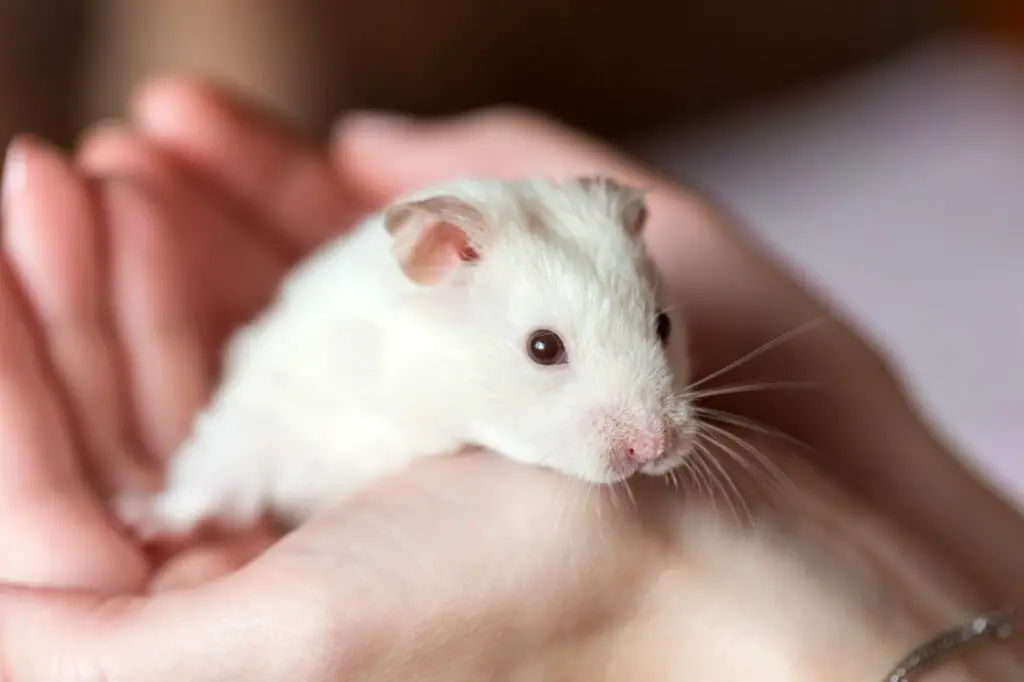Hamsters are one of the most popular pets in the world, and with good reason. They are cute, cuddly, and fun to watch. However, one of the biggest problems that hamster owners face is the issue of biting. Many new owners are often surprised by the biting behavior of their furry friends and wonder why hamsters bite. In this blog post, we will explore the common reasons behind hamster biting and how to prevent and manage this behavior.

Understanding Hamster Behavior
Before we dive into the reasons behind hamster biting, it is essential to understand their behavior. Hamsters are social creatures that thrive on human interaction. However, they can be sensitive to noise and sudden movements. They are also prey animals and can be skittish, which is why they tend to hide or become aggressive in stressful situations.
Common Reasons for Hamster Biting
There are several reasons why hamsters bite. Some of the most common ones include:
First-time Ownership and Handling
If you are a new owner or have never handled a hamster, it is possible to startle or scare your pet. Hamsters can become nervous or agitated if they are handled too roughly or if they feel their personal space is being invaded. If your hamster bites when you try to pick them up, they may be feeling threatened.
Overstimulation and Agitation
Hamsters can become overly stimulated and agitated if they are subjected to too much noise or activity. This can include loud music, yelling, or sudden movements. If your hamster is feeling overwhelmed, they may lash out by biting.
Health Issues and Pain
If your hamster is in pain or suffering from a health issue, they may be more prone to biting. Hamsters may become grumpy or irritable if they are experiencing discomfort, and biting may be a way for them to express their discomfort.
Preventing Biting Behavior
Preventing biting behavior requires understanding and patience. Here are a few tips to help prevent biting behavior in your hamster:
Proper Handling Techniques
When handling your hamster, make sure to be gentle and move slowly. Make sure to give them enough space to feel comfortable, and avoid sudden movements or loud noises.
Creating a Calm Environment
Hamsters thrive in a calm environment. Make sure to keep your hamster’s cage in a quiet part of your home, away from loud noises or sudden movements.
Regular Health Checkups
Regular health checkups can also help prevent biting behavior. If your hamster is suffering from a health issue, it is essential to get them treated as soon as possible.
Training and Taming Your Hamster
Hamsters can be trained and tamed to reduce biting behavior. Here are a few tips to help train and tame your furry friend:
Positive Reinforcement
Positive reinforcement is a powerful tool for training your hamster. When your hamster exhibits positive behavior, such as not biting when you handle them, reward them with their favorite treat.
Regular Handling
Regular handling can also help tame your hamster. Start by handling them for just a few minutes a day and gradually increase the time. This will help them get used to being handled and reduce their tendency to bite.
Interacting with a Biting Hamster
If your hamster bites, it is essential to approach them with caution. Avoid aggressive behaviors such as shouting or hitting your hamster, as this will only make the problem worse. Instead, try to understand why your hamster is biting and take steps to address the root cause of the problem.
When to Seek Professional Help
If your hamster continues to exhibit biting behavior despite your best efforts to train and tame them, it is time to seek professional help. A veterinarian or a professional trainer can help identify the root cause of the behavior and develop an effective training plan.
Conclusion
In conclusion, hamster biting behavior is a common problem among pet owners. By understanding the reasons behind this behavior and taking steps to prevent and manage it, you can help keep your hamster happy, healthy, and well-behaved. Remember to be patient and kind when handling your hamster, and always seek professional help if needed. With the right training and care, your hamster can become a wonderful companion that brings joy and happiness to your life.
- How Long Do American Eskimo Dogs Live? Important Factors and Care Tips - September 29, 2023
- Do American Bulldogs Need Grooming? Essential Tips and Care Guidelines - September 29, 2023
- Do Bengal Cats Enjoy Playing? Essential Tips for Keeping Them Active - September 29, 2023